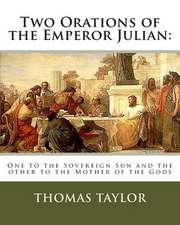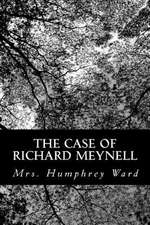Erewhon
Autor Samuel Butleren Limba Engleză Hardback – iul 2008
| Toate formatele și edițiile | Preț | Express |
|---|---|---|
| Paperback (26) | 47.51 lei 3-5 săpt. | |
| CREATESPACE – | 47.51 lei 3-5 săpt. | |
| CREATESPACE – | 51.14 lei 3-5 săpt. | |
| Mint Editions – 30 noi 2020 | 54.89 lei 3-5 săpt. | +8.98 lei 4-10 zile |
| CreateSpace Independent Publishing Platform – | 62.65 lei 3-5 săpt. | |
| Penguin Books – 22 feb 2006 | 67.67 lei 24-30 zile | +22.38 lei 4-10 zile |
| – | 69.21 lei 3-5 săpt. | |
| CREATESPACE – 27 dec 2012 | 70.96 lei 3-5 săpt. | |
| CREATESPACE – | 72.83 lei 3-5 săpt. | |
| Erewhon Books – 17 oct 2022 | 84.32 lei 3-5 săpt. | |
| Rowman & Littlefield – 31 mar 1998 | 89.33 lei 3-5 săpt. | |
| – | 99.36 lei 3-5 săpt. | |
| CREATESPACE – | 101.00 lei 3-5 săpt. | |
| CREATESPACE – | 118.72 lei 3-5 săpt. | |
| Alpha Editions – 23 oct 2018 | 66.74 lei 6-8 săpt. | |
| SMK Books – 23 ian 2012 | 67.76 lei 6-8 săpt. | |
| Lector House – 8 iul 2019 | 88.86 lei 6-8 săpt. | |
| Blurb – 7 feb 2019 | 91.07 lei 38-44 zile | |
| Waking Lion Press – 29 iul 2008 | 97.22 lei 6-8 săpt. | |
| – | 97.62 lei 6-8 săpt. | |
| – | 101.00 lei 6-8 săpt. | |
| Martino Fine Books – 2 iun 2017 | 128.73 lei 38-44 zile | |
| Book Jungle – 3 noi 2009 | 151.64 lei 6-8 săpt. | |
| Book Jungle – 27 aug 2008 | 151.85 lei 6-8 săpt. | |
| TREDITION CLASSICS – 31 oct 2011 | 185.19 lei 6-8 săpt. | |
| Echo Library – 31 dec 2005 | 227.72 lei 38-44 zile | |
| Kessinger Publishing – 21 noi 2009 | 288.28 lei 38-44 zile | |
| Hardback (3) | 82.58 lei 3-5 săpt. | +14.21 lei 4-10 zile |
| Mint Editions – 8 dec 2020 | 82.58 lei 3-5 săpt. | +14.21 lei 4-10 zile |
| Editorium – iul 2008 | 151.58 lei 6-8 săpt. | |
| SMK Books – 3 apr 2018 | 179.24 lei 6-8 săpt. |
Preț: 151.58 lei
Nou
Puncte Express: 227
Preț estimativ în valută:
29.01€ • 30.17$ • 23.95£
29.01€ • 30.17$ • 23.95£
Carte tipărită la comandă
Livrare economică 14-28 aprilie
Preluare comenzi: 021 569.72.76
Specificații
ISBN-13: 9781434115836
ISBN-10: 1434115836
Pagini: 232
Dimensiuni: 160 x 231 x 19 mm
Greutate: 0.51 kg
Editura: Editorium
ISBN-10: 1434115836
Pagini: 232
Dimensiuni: 160 x 231 x 19 mm
Greutate: 0.51 kg
Editura: Editorium
Notă biografică
Samuel Butler (1835 - 1902) was an iconoclastic English author of a variety of works. Two of his most famous works are the Utopian satire Erewhon and the semi-autobiographical novel The Way of All Flesh, published posthumously. He is also known for examining Christian orthodoxy, substantive studies of evolutionary thought, studies of Italian art and works of literary history and criticism. Butler made prose translations of the Iliad and Odyssey that remain in use to this day.
Descriere
Descriere de la o altă ediție sau format:
Setting out to make his fortune, a young traveller discovers the remote and beautiful land of Erewhon, and is given a home among its handsome citizens. But their visitor soon discovers that this ideal community has its faults... This is a humorous satire on conventional virtues, religious hypocrisy and the unthinking acceptance of beliefs.
Setting out to make his fortune, a young traveller discovers the remote and beautiful land of Erewhon, and is given a home among its handsome citizens. But their visitor soon discovers that this ideal community has its faults... This is a humorous satire on conventional virtues, religious hypocrisy and the unthinking acceptance of beliefs.





















